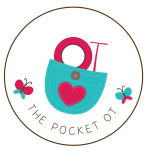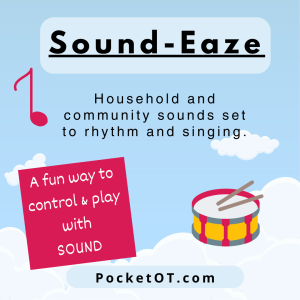
20 Snowman Crafts
Who wants to build a snowman? We do! This week we’ve rounded up some snowman crafts and activities. Each link contains a fun…
The 4th of July is here. Nothing like a holiday to bring family and friends together – this year is extra special because many virus restrictions are being lifted. Since we all feel like celebrating, I thought I’d tell you a little story about my own son with autism plus sensory processing difficulties.
I’d prepared the truck with blankets, popped the popcorn, bought sparklers for the BBQ, fired up the grill. All things we usually did for the Independence Day holiday. Our son had enjoyed this day and we looked forward to being with family. This year, every noise, touch, sight bothered our son. He was miserable and we were absolutely unprepared for his reaction…he had so many meltdowns that they ended up blending into each other until he shut down altogether. We had NO idea what changed this year. We didn’t attempt the fireworks and our guests ended up leaving early. What happened? The thing with sensory issues is that they can CHANGE!
This is WHY I became a pediatric OT. I needed to figure out how to help my son – and others like him. Since then, the phrase ‘an ounce of preparation is worth a pound of cure’ has become our daily motto.
We all feel uncomfortable at different times, but sometimes our cup is already full and one small event causes a meltdown. Every person’s behavior is just that – the body’s way of coping with something experienced at the time. If we consider that behavior as communication, it’s easier to look objectively at ways to help. When in the middle of a meltdown, the body is under a chemical release of hormones designed to protect the person. Fight, flight, or freeze reactions are simply protective mechanisms. These hormones take time to go away and we may simply need to get our children to safety until they experience calm again. The time in which kids are melting down is not the time to teach them lessons or review the situation. Think about a time in which YOU felt upset. You didn’t want to learn a new skill or review the situation until you felt a sense of peace again.
 Remember that kids often become fearful of loud noises such as fireworks and thunder. Here are a few ‘Out of the Pocket‘ tips:
Remember that kids often become fearful of loud noises such as fireworks and thunder. Here are a few ‘Out of the Pocket‘ tips:
**Create a safe space for kids to go when they hear a loud or scary noise. I call this a cool-down zone. It can be as simple as a blanket fort in the home or you can create one with a kit, such as this one.
**Practice with our Sound-Eaze CD tracks with common sounds kids fear. Believe it or not, we ALL want to have control – especially of things we are afraid of. Imagine knowing a spider is crawling under your sheets, but you cannot find it! You’d desperately try to find it and let it back outside or terminate it. Kids want that too!
 Sound-Eaze CDs are not a listening program – they are simply sounds kids can control like fireworks and thunder! Here’s the link.
Sound-Eaze CDs are not a listening program – they are simply sounds kids can control like fireworks and thunder! Here’s the link.
**Play calming music for kids who have trouble with noise. Let the child control the volume of the music. Try classical music or something with a strong beat.
**Use noise-canceling headphones. Here’s my earlier post about the fear of loud noises. It has 7 great tips for your child.
Looking for an activity for the entire family? Here’s our fun and colorful 4th of July BINGO game! Get it now while it’s on SALE!
.


